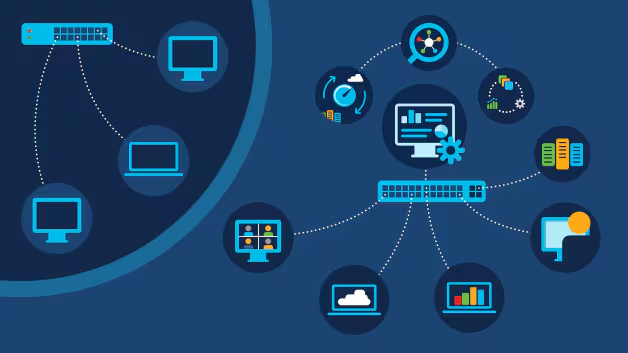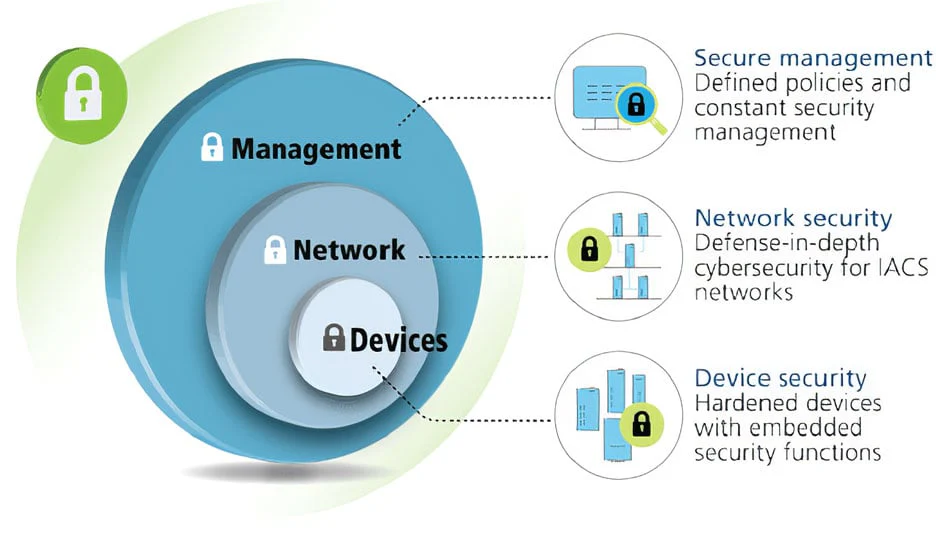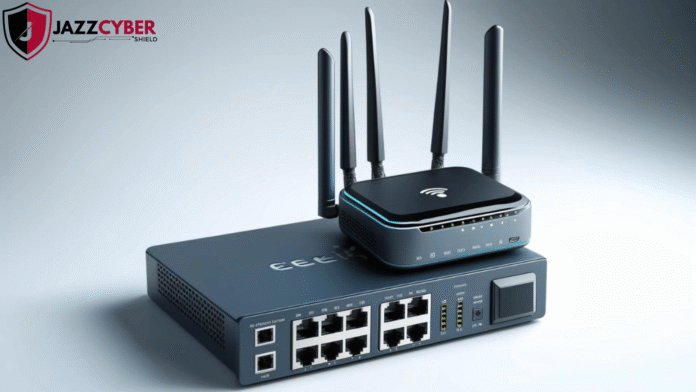The demand for enterprise network solutions that provide robust and reliable services has ballooned within this hyper-connected world. Businesses today depend on seamless data transmission, secure communications channel, and scalable infrastructures. This is precisely where routers and network switches managed come into play.
These devices do not merely connect systems; they alter the whole digital landscape in which the companies go about their business. Besides, they play a critical role in optimizing performance, maintaining data integrity, and ensuring constant connectivity.
Why Routers Are Important for Enterprise Networks
Routers perform the part of traffic managers for enterprise networks; routers receive packets and send them between internal networks and the internet. Besides internet access, routers come with firewall protection, support for VPNs, and bandwidth management. For example, enterprise-grade routers build for high amounts of traffic with strong Quality of Service (QoS) capabilities.
In addition to this, advanced enterprise-grade routers achieve dual or even tri-band Wi-Fi, removing congestion and driving productivity. It does not matter if your organization uses VoIP, video conferencing, or cloud applications.
The Managed Switches in Large Scale Networks

Managed switches, unlike unmanaged ones, allow a total control over data flowing within your local area network (LAN). VLANs, QoS, and traffic measurement are among the features essential for companies within these switches. In addition, because of using this kind of switch, a network administrator can easily troubleshoot problems anywhere, thereby causing reduced downtime and running costs.
Majorly, managed switches also build their security through isolating traffic, implementing access controls, and enabling port security. This multi-layered approach has become necessary in the present age, which is increasingly becoming vulnerable to cyber threats. Therefore, for businesses, the introduction of managed switches forms the foundation on which one can build a highly performance oriented, extremely secure environment molded to all their growth features.
Superior Performance and Scalability with Combined Power
When both managed switches and routers come together as one, they create an even more powerful union. Whereas a router opens up the communication and firewall security to the outside, a managed switch takes care of communication internal to the organization. The result of this is, therefore, speedy data transfer, lessened latency, and smarter prioritization of traffic.
In addition to that, the infrastructure can scale seamlessly as it adds departments or remote teams or IoT devices without taking installation issues into consideration. All that a company requires is to buy routers and switches and these automatically adjust and set up operation. This therefore allows IT teams to scale the breadth of operations without the need to create a new network from scratch-and this saves time and cost.
While Boosting Security and Compliance Network

Cybercrime has been an immense threat that concerns most organizations nowadays. Built-in firewalls and functioning intrusion detection systems, as well as VPN encryption, are incorporated in enterprise routers, signifying security. With managed switches, security increases, as network zones can be segmented and anomalies detected, logging traffic for further audits.
A regulated industry such as healthcare or finance would find those features useful because they allow adherence to laws regarding data protection. Access control that is secure and limited also ensures that the sensitive systems are only available to authorized users, and this has greatly reduced the chances of breaches.
Future-Proofing Enterprise Networks
Wherever the technology goes, the network will follow. With this in mind, high-performance routers and managed switches are not just a stopgap; they are future-proofing devices. With cloud-based management, AI-driven optimization, and firmware updates, these devices enable enterprises to embrace future developments through minimal changes.
Moreover, companies can couple these solutions with SD-WAN, edge computing, and virtualization platforms for additional flexibility. Your network will stay agile, secure, and performance-oriented for the next several years.
Conclusion: Empowering Enterprise IT Infrastructure
In summary, routers and managed switches are not optional but are, instead, a necessity for a successful enterprise network. They make networks faster, scale well, provide better security, and enable compliance. Most importantly, they help the enterprise run efficiently in a digital-first world.
Hence, whether upgrading or building an infrastructure, always choose enterprise-grade routers and managed switches. These would stand between productivity, security, and growth.



